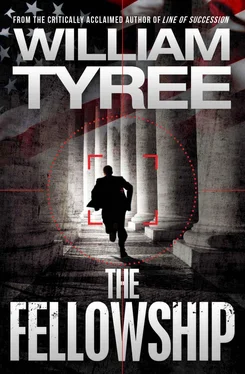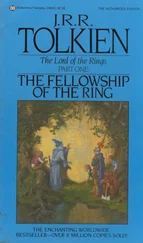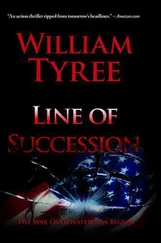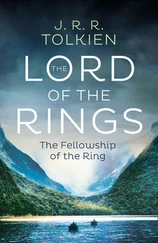William Tyree - The Fellowship
Здесь есть возможность читать онлайн «William Tyree - The Fellowship» весь текст электронной книги совершенно бесплатно (целиком полную версию без сокращений). В некоторых случаях можно слушать аудио, скачать через торрент в формате fb2 и присутствует краткое содержание. Год выпуска: 2013, Издательство: Massive, Жанр: Триллер, на английском языке. Описание произведения, (предисловие) а так же отзывы посетителей доступны на портале библиотеки ЛибКат.
- Название:The Fellowship
- Автор:
- Издательство:Massive
- Жанр:
- Год:2013
- ISBN:нет данных
- Рейтинг книги:5 / 5. Голосов: 1
-
Избранное:Добавить в избранное
- Отзывы:
-
Ваша оценка:
- 100
- 1
- 2
- 3
- 4
- 5
The Fellowship: краткое содержание, описание и аннотация
Предлагаем к чтению аннотацию, описание, краткое содержание или предисловие (зависит от того, что написал сам автор книги «The Fellowship»). Если вы не нашли необходимую информацию о книге — напишите в комментариях, мы постараемся отыскать её.
The Fellowship — читать онлайн бесплатно полную книгу (весь текст) целиком
Ниже представлен текст книги, разбитый по страницам. Система сохранения места последней прочитанной страницы, позволяет с удобством читать онлайн бесплатно книгу «The Fellowship», без необходимости каждый раз заново искать на чём Вы остановились. Поставьте закладку, и сможете в любой момент перейти на страницу, на которой закончили чтение.
Интервал:
Закладка:
The FBI Director answered on the first ring. “Anything you want to know about Carver,” Speers declared, “You can ask me right now.”
It took Fordham a moment to form a response. “Sorry, Julian. I never guessed this would go through you personally.”
“Just tell me what you’re looking for.”
“Well, everything, frankly. The president requested Carver’s involvement, not me. I want to know more about who I’m working with.”
Speers wasn’t about to lay everything on the table. Besides, Carver’s most interesting work had been deliberately omitted from the record. “You called me last year asking who the hell he was. You remember what I told you?”
He heard Fordham take a sip of something hot before speaking. “You said if I needed someone to parachute into a mountain fortress in the middle of the night to get somebody important, then Carver would be the guy.”
“That’s right. And here’s what I should have said — if you needed someone to figure out that the target was there in the first place, then Carver would also be the guy. You remember two years ago when the CIA foiled an Allied Jihad plot to kidnap that drone pilot out in Nevada?”
“Don’t tell me that — ”
“Yes, that was Carver’s operation. What else?”
“There’s a rumor that he’s in trouble with the House Committee on Domestic Intelligence.”
“Then you already know he’s protecting Nico Gold. It’s not what I’d do, but at least Carver’s loyal, which is more than I can say for most people.”
“And that’s all there is to it?”
“That’s right. He’s protecting an asset. That’s it.”
Fordham thanked Speers for his time and hung up. Speers had hunch that Fordham wasn’t the type to be satisfied that quickly, though. He’d find a way into Carver’s file with or without permission. Speers unwrapped a grape lollipop and decided he better see if anything needed editing.
He navigated to Carver’s dossier and began browsing through it, not quite sure what he was looking for. He cracked the lollipop between his molars, chewing it as casually as gum although it sounded like he was crushing rocks.
After college, Carver applied for the CIA’s clandestine service. But the evaluating psychiatrist recommended him for the Joint Strike Operations Command (JSOC) — a paramilitary spy, capture and kill force rolled into one.
Pulling up the results of Carver’s initial background check, he saw a handful of unpaid parking tickets that had shown up on his initial federal background check. Other than that, it looked like he had never broken the law. The polygraph hadn’t budged when he’d claimed that he had never had drugs or alcohol. Heck, he’d never even had coffee. He had grown up in a small Mormon town in northern Arizona. When the examiner asked if he was religious, he answered no. When asked if he believed in God, he’d said yes.
Back then he had listed his primary hobby as “hunting.” That figured. He had 5,000 square miles of Arizona’s White Mountains as his backyard. His father had taught him how to stalk game in the woods and be stealthy enough to kill an antelope with a bow amp; arrow. The psychiatrist asked him how many of his kills he had eaten over the years. The point of the question had been to discover whether Carver valued animal life, or whether he felt entitled to kill for sheer enjoyment. A typical response would have been, “We eat everything we kill.” Carver’s response was off the charts: “Fourteen deer, 12 elk, 151 ducks, 3 antelope, 29 geese.” He remembered every single one from the time he was nine years old. That was the super-autobiographical memory at work.
Aside from being an expert marksman, he had a high tolerance for risk, did not suffer from nightmares, and was just athletic enough to be dangerous.
Within five years of Carver’s joining JSOC, his unit became extremely active in Afghanistan as the war on terror switched into high gear. His unit would go out after a bad guy virtually every night. As the months and years went on, they had filled secret prisons and cemeteries with their trophies.
Eventually JSOC created an intelligence support branch, which was initially staffed by CIA. Carver’s commander reassigned him. They needed a mind like his in the command center. By all accounts he was great in his new role, but he hated it. He wanted to be out where the action was.
During the Hatch administration, when Speers had begun to suspect that something fishy was going on with the Pentagon’s relationship with Ulysses USA, he had gone to the CIA Director and asked him who their best guy was. Someone that was as strong in intelligence as he was in execution. Blake Carver’s name had been the first out of his mouth.
What followed was deliberately absent from the file. He had resigned from the CIA so that he would be accountable only to Speers. There was no more history.
Speers scrolled back up through the dossier. He stopped at the description of Carver’s cognitive disorder. It concerned him. In the wrong hands, it could leave Carver vulnerable. Due to enhanced episodic memory, most people with hyperthymesia spend an inordinate amount of time thinking about their past. They also have an amazing capacity to recall personal events or trivial details, including sensory details such as smells, tastes and sounds. Mr. Carver appears to have the rare ability to turn off “retrieval mode” so that he can focus on the present. He should, however, have regular neurological examinations to monitor the functions in his frontal cortex. Should he experience highly violent scenarios in the line of duty, for example, losing the ability to control his recall abilities could be far more crippling than a person with a normal prefrontal cortex.
Speers highlighted the entire diagnosis. Then he deleted it.
Somewhere Over the Atlantic
With a phone call, Speers had arranged a private charter leaving immediately from Reagan National Airport. If they had to go to London, at least they were aboard a fast plane. The Gulfstream IV was capable of speeds just short of Mach 1, shortening the flight time to a little over five hours. That was way better than the winged whales Carver was accustomed to flying. With a few rare exceptions, his modus operandi had been hitching rides on military transport planes that happened to be heading his way. But in this case, he felt the cost of the charter — a couple hundred thousand dollars — was worth it. The trail was growing colder by the second.
As the Gulfstream cruised at 28,000 feet, Haley Ellis sat in a cream-colored leather chair facing his. She and Carver had said little to each other since taking off. They were both busy digesting a steady feed of public and classified information about the victims.
There was nothing obvious to suggest that Preston or Gish had ever met. The fact that they were both publicly elected officials from Western countries seemed to be just about the only thing they had in common. Carver was confident they would find a common link, but how long would that take? More than anything, it was the ensuing fire that puzzled him. How and why had it been started? The killers had placed a calling card in Preston’s mouth. Obviously some sort of message. Why would they then burn the place up?
He composed a text message and fired it off to Julian: anyone claimed responsibility? Speers’ reply: nope. Playing hard to get.
Now he received a stream of information from Arunus Roth about the senator’s executive assistant, Mary Borst. She was 26 years old. She held a Dutch passport, having been born in Amsterdam to a prominent politician named Vera Borst. Graduated with honors from NYU, where she had studied political science. Immediately after graduation she had worked as a volunteer on Preston’s reelection campaign, and had subsequently landed a job as a staff assistant in his D.C. office, where she had answered phones and staffed the front desk. In three years, she had worked her way up to an aide position, and then officer manager, before becoming Preston’s executive assistant.
Читать дальшеИнтервал:
Закладка:
Похожие книги на «The Fellowship»
Представляем Вашему вниманию похожие книги на «The Fellowship» списком для выбора. Мы отобрали схожую по названию и смыслу литературу в надежде предоставить читателям больше вариантов отыскать новые, интересные, ещё непрочитанные произведения.
Обсуждение, отзывы о книге «The Fellowship» и просто собственные мнения читателей. Оставьте ваши комментарии, напишите, что Вы думаете о произведении, его смысле или главных героях. Укажите что конкретно понравилось, а что нет, и почему Вы так считаете.











